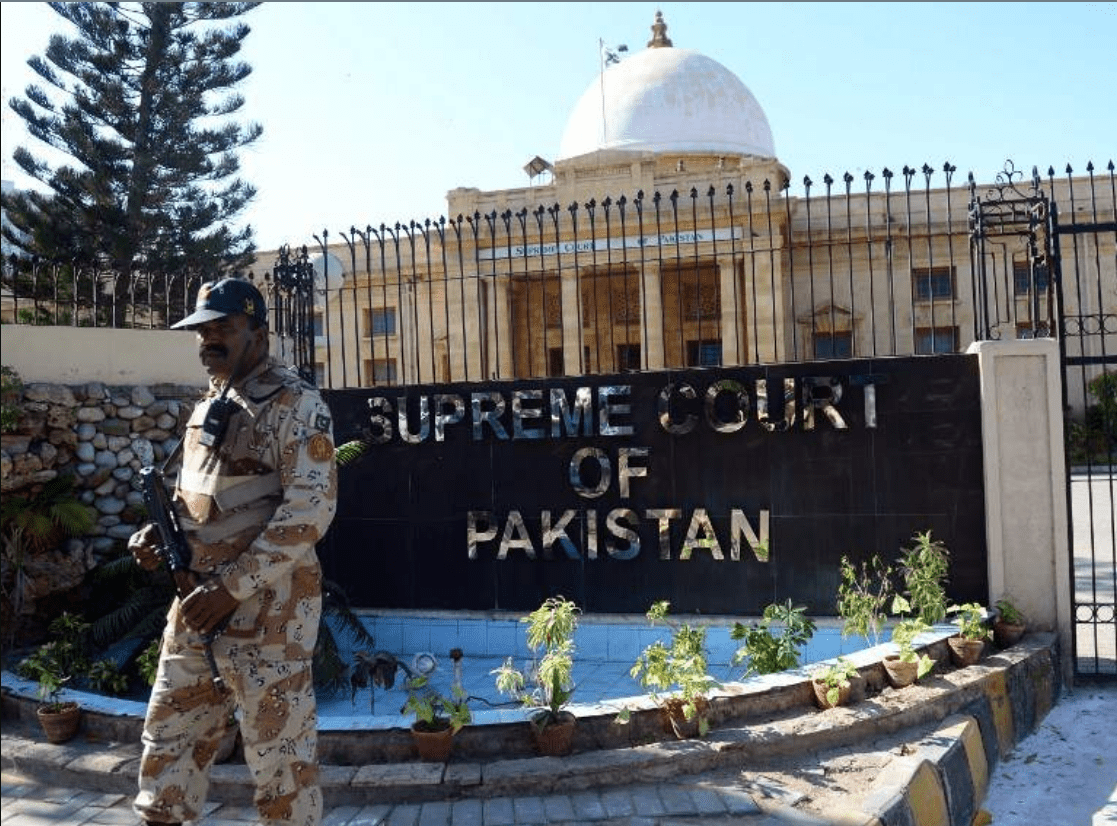Faizabad report is judiciary’s surrender to ISI

The Faizabad Commission’s exoneration of former ISI chief, Lt. Gen. Faiz Hameed, for supporting the extremist Sunni group, Tehreek-e-Labbaik Pakistan (TLP), in 2017, once again confirms the complicity of political leadership and judiciary in sustaining the rogue intelligence agency’s dark deeds.
The commission also let go of political leadership and bureaucrats from any complicity in the sordid drama that paralysed the country for weeks and saw the rise of the extremist Sunni group, TLP.
The commission’s findings come, ironically, weeks after six Islamabad High Court judges wrote to the Chief Justice of Pakistan, Justice Qazi Faez Isa, about the intimidation and interference in judicial matters by ISI and other state agencies. The highest court first shirked the responsibility of taking to task the ISI for such gross meddling in judicial matters by sending the matter to the federal government which hastily returned it. Now the Chief Justice is exploring ways to bury the matter in delays and judicial obfuscations.
These two incidents underline how powerful the notorious ISI is in keeping control of the key institutions of the Pakistani government. Both incidents show the ISI’s power in manipulating the politics and judiciary of the country. The Faizabad incident was part of the army’s deceitful game to bring Imran Khan to Islamabad as the Prime Minister, sidelining the once-influential Prime Minister Nawaz Sharif. The spy agency used a new Sunni extremist group, TLP, to create mayhem across the country. There was clear evidence of the ISI’s hand in the violence spearheaded by TLP and the secret agreement signed with the extremist group. The deal was signed by Faiz Hameed who was then the head of ISI’s Interior unit. Newspapers carried photographs of senior army and police officials handing out envelopes with currency notes to protesters.
Although the judiciary took up the matter as a suo moto case, the matter was dragged for several years before the Supreme Court constituted a panel. There was a brief hope in public that the highest court of the land would take the ISI to task for engineering arson and violence across the country for political reasons. The panel found no fault in Lt. General Faiz Hameed’s action in signing an agreement with extremist groups. Nor was there any indictment of the spy agency as well as other police agencies for rewarding the protesters with bribes. There is little hope from the Supreme Court of questioning the panel’s findings. Nor will there be any action on the panel’s weak suggestion that ISI and other agencies should work under the federal government.
If the panel’s abject capitulation to ISI were to be considered with the dramatic letter written by six judges of the Islamabad High Court recently, it becomes clear how the judiciary in Pakistan is playing second fiddle to the powerful and intimidating Pakistan Army and its notorious intelligence agency.






